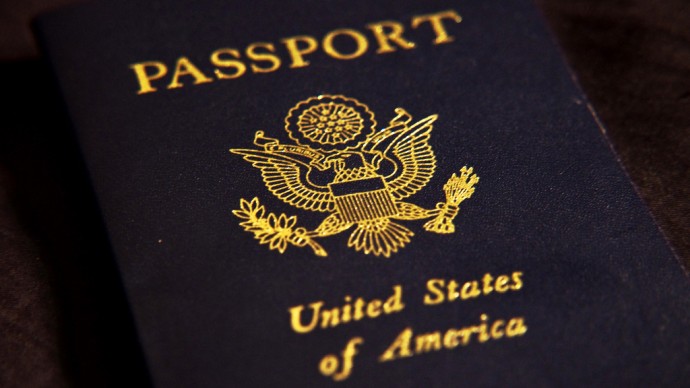(MintPress)-As tax day comes and goes, so begins the automatic two-month extension for US citizens and resident aliens living abroad. To some, an extension is a relief, but to more and more Americans it is a reminder of the heavy burdens associated with international tax payer policies in the US – policies that have prompted thousands of people living abroad to renounce their US citizenship or turn in their greencards.
The Internal Revenue Service (IRS) reported that nearly 1,800 people renounced their US citizenship or green cards in 2011, eight times more than in 2008 when just over 200 Americans renounced their US citizenship. More people renounced their US citizenship in 2011 than in 2007, 2008, and 2009 combined.
Of the estimated five to seven million US citizens residing abroad, less than 900,000 taxpayers filed their returns from a foreign address in 2009. The National Taxpayer Advocate Service (NTA), an independent office within the IRS, believes that tax requirements are so confusing and the compliance risk is so great that many Americans refuse to file their taxes and some choose to give up their citizenship altogether.
The IRS published in the Federal Register the names of 1,788 people who formally renounced their US citizenship in 2011. Actual figures may be higher given known miscalculations with IRS renunciation counts. State Department records differ markedly from the IRS, remaining steady at an average 1,100 renunciations annually.
The number of renunciations in 2011 is a record high for the IRS, which began publishing data on the topic in 1998. Peter Dunn, a dual US-Canadian citizen living in Toronto, told Reuters that renouncing his citizenship was “a no-brainer.” Regarding IRS compliance enforcement policies, Dunn says, “It’s making life difficult for a lot of people…It’s driving us away.”
Why are taxes so confusing for Americans living abroad?
A 2012 report by the World Bank Group ranked the US 66th in time spent to comply with tax regulations and 69th in overall ease of paying taxes compared to 183 countries surveyed. If separated by international taxpayer policies, the US may rank much worse considering that the United States is one of the only countries to tax its citizens on income earned while living in another country.
According to the NTA, individual international taxpayers spent at least 25 million hours reviewing and completing tax forms in 2009. International reporting requirements are so overwhelming that a complete understanding of federal tax information for US taxpayers living abroad is compiled in eight publications totaling over 7,000 pages, over double the pages in the controversial Affordable Care Act, about which Supreme Court Justice Antonin Scalia rhetorically asked, “You really want us to go through these 2700 pages?”
US citizens who do work through the paperwork and file international individual returns on average have two times the math error rate and are less likely to file electronically compared to all US tax returns.
The NTA reported last December in its 2011 Annual Report to Congress that “the complexity of international tax law, combined with the administrative burden placed on these taxpayers, creates an environment where taxpayers who are trying their best to comply simply cannot.”
The United States taxes US citizens based on worldwide income while foreign persons are only taxed on US-source income. “If it was just me then it would be one thing,” said Dunn, who is married to a Canadian. “Disclosing joint accounts I hold with my wife and anyone I ever want to do business with – that’s just too much,” Dunn told Reuters.
International taxpayers unable to comply with the complex requirements, which also include provisions about foreign housing allowances and foreign earned income exclusions, face harsh penalties that are disproportionate to the amount of taxes involved. Some taxpayers may even face criminal charges for unintentional noncompliance.
NTA Recommendations for International Tax Regulations
A recent IRS study of taxpayer needs and preferences showed that international taxpayers may need more support from the IRS than other groups of taxpayers. Yet, the IRS has chosen to invest hundreds of millions of dollars in international taxpayer enforcement programs rather than on improving taxpayer services that would foster compliance from Americans living abroad.
The NTA presented to Congress several recommendations for how to improve IRS services and lift the burdens that can incite international taxpayers to renounce their citizenship. Recommendations focused on simplifying tax policy information, providing free online filing programs, and improving communication with taxpayers living abroad through improved online, on-call, and in-person services.
One response on an IRS survey of US taxpayers abroad said, “The website is very difficult to use. You almost need to be a tax specialist to find anything. I spent more than an hour looking for the information I needed and finally gave up in frustration.”
In response, the NTA suggests that the IRS develop a comprehensive website with outreach materials, provide international toll-free telephone access for US taxpayers abroad to talk with tax specialists, and implement an Estimated Waiting Time (EWT) for all customer service lines to reduce wait time for international taxpayers seeking assistance.
Additionally, the NTA urges the IRS to open tax attaché offices in countries with a large US taxpayer presence for in-person taxpayer services, especially in Mexico where roughly one million US taxpayers reside. The IRS has so far refused to reopen its Mexico City office.
With the US economy still in recovery and more opportunities opening up for Americans overseas, the number of US taxpayers abroad is not likely to decline any time soon. Australia recently announced it has eased the visa process for skilled workers from the US hoping to fill gaps in its booming mining and gas industries.
Instead of focusing on penalizing international taxpayers, who are not easily identified or accurately assessed for filing compliance rates, the IRS would be wise to follow the NTA’s advice and focus on improving services for international taxpayers or risk more international taxpayers, like those hoping to fill millions of jobs in Australia, renouncing their US citizenship in the future.



